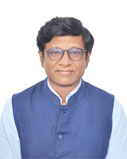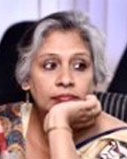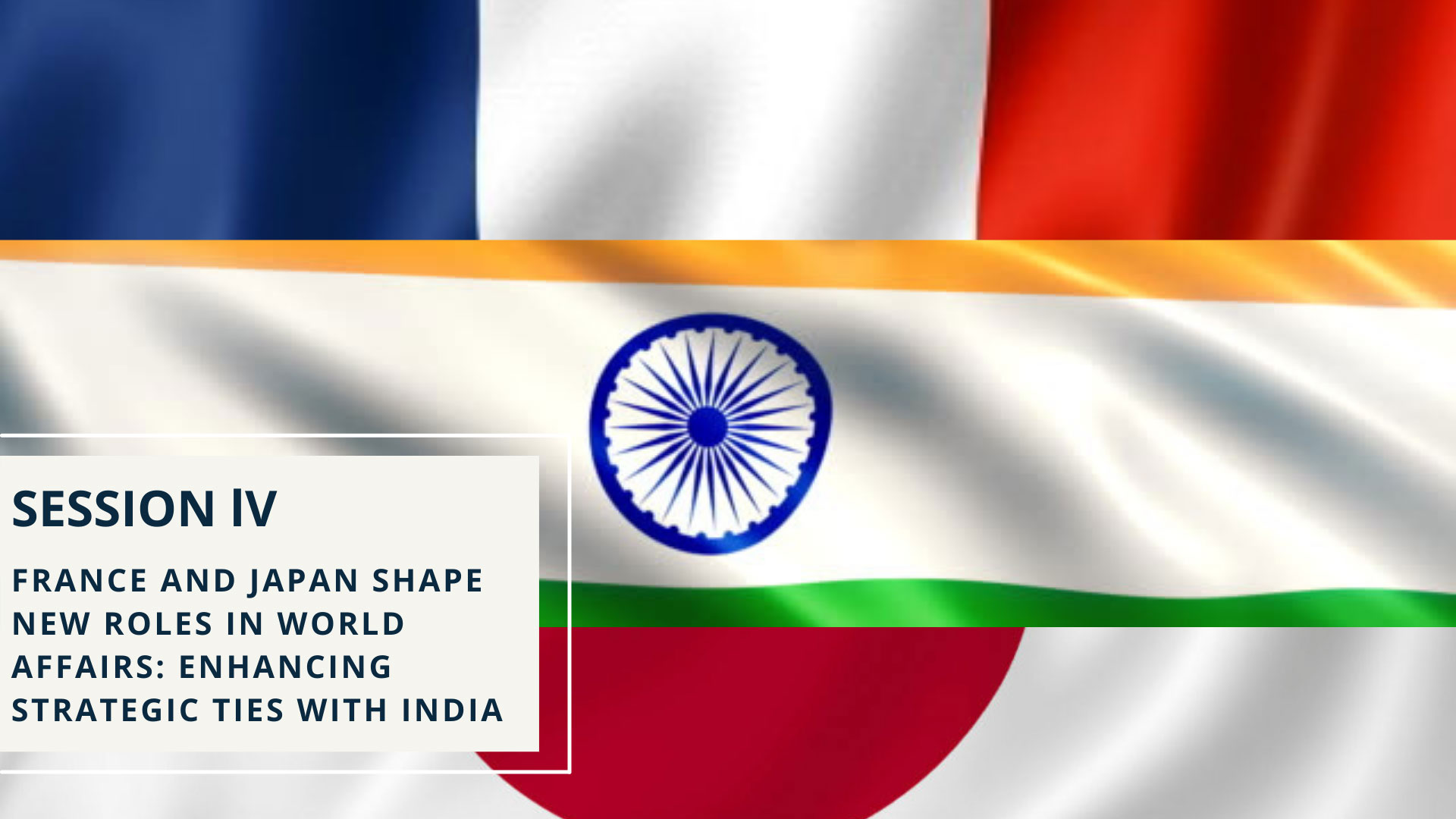SESSION IV
FRANCE AND JAPAN SHAPE NEW ROLES IN WORLD AFFAIRS:
ENHANCING STRATEGIC TIES WITH INDIA
While India has shared good bilateral ties with Japan and France in the
past, it is in the last few years that the relations have as sumed even greater
importance. It could be safely said that both, Indo Japanese and Indo-
French ties are devoid of his torical baggage and major disagreements. In
fact, today, India shares a complementarity of strategic interests with both
these countries with regard to China and the Indo-Pacific Region (IPR).
Against the backcloth of a pronounced global shift to Asia and the
initiation of the Quadrilateral Security Dialogue by Prime Minister Shinzo
Abe in 2007, the two countries have sought to enhance the existing ties and
further their strategic interests. To counter China's exclusivist approach,
the Japanese Premier called for "a free and open Indo-Pacific", a concept
based on the principles of stability, inclusivity and multi-polarity, and one
that has found resonance with India as well as wi th the United States .
Through the "2+2" strategic dialogue mechanism, India and Japan have
sought to deepen defence cooperation through joint exercises of the
different wings of their militaries-Dharma Guardian land exercise, the
Shinyu Maitr air exercise, and the Japan-India Mari time Exercise-as well as
through the Acquisition and Cross-Servicing Agreement (ACSA), which was
signed in September 2020, will allow the two count ries to use each other's
military bases for logistical support. With the finalization of ACSA, the
Indian Navy will likely get access to the Japanese base in Djibouti, a
strategically located country in the Horn of Africa. With regard to defence
trade, India is exploring the possibility of acquiring the ShinMaywa US-2
amphibious aircraft for the Indian Navy. The deal, when concluded, would
enhance India's mari time capabilities as well as contribute to its defence
manufacturing sector as Japan has committed to manufacture 30 percent
of the aircraft in India.
The two countries are also in discussion to cooperate on strategic
infrastructure projects in India's North East region, except Arunachal
Pradesh, as well as in third countries like SriLanka. It is timely and
notewor thy that the Indian EAM not only highlighted the centrality of
"development efforts" in strengthening the India-Japan partnership but also
along with the Japanese Ambassador to India, in February 2021, they both
"made a st rong pitch for Assam to be a hub for connectivity and economic
activiyies with Southeast Asia, with Japanese funding playing a key role in
taking forward infrastructure and development projects." The relationship
between the two countries, therefore, has the potential to become a special
strategic partner ship in the years to come.
The last few years have witnessed a concerted effort on both, the Indian
and French sides to further enhance a traditionally good diplomatic
relationship. The two countries which became strategic partners in 1998
have a number of areas of cooperation which include defence, space,
mari time, security, environmental protection, climate, energy and
sustainable development. Defence cooperation and trade have resulted in
joint naval exercises-Shakti, Varuna and Garuda for the Army, Navy and Air
Force respectively and the acquisition of 36 Rafale fighter jets (out of which
eleven have been delivered to India).
With the rise in importance of the geopolitical construct of the Indo-Pacific
region, the two countries see each other as natural partners. With territories
in the Pacific and Indian Oceans, France is a resident power in the region
and therefore, intends to develop a network of strategic partnerships in the
Indo-Pacific with countries like India, Australia, Japan, amongst others. The
importance accorded by both countries towards strengthening cooperation
in the Indo-Pacific region was flagged during the annual India-France
Strategic Dialogue held in January 2021.
Prior to this, in 2018, President Macron suggested collaboration between
India, Australia and France to respond to the challenges of the IPR;
trilateral cooperation between India, France and the UAE is also under
consideration, with a likely trilateral military drills lated to be held in April 2021. India and France also spearhead the International Solar Alliance
which has 74 signatories of which 52 countries have ratified the Framework
Agreement of the ISA.
The Indo-French strategic partnership is, as Vice President Venkaiah Naidu
described it , an important pillar of India's foreign policy.
AGENDA
DAY II
FRIDAY 30 APRIL 2021
|
02:00 PM - 03:15 PM
- FRANCE AND JAPAN SHAPE NEW ROLES IN WORLD AFFAIRS: ENHANCING STRATEGIC TIES WITH INDIA
- INDO-FRENCH RELATIONS
- INDIA-JAPAN RELATIONS
- THE INDO-PACIFIC IN THE GLOBAL STRATEGIC SCENARIO
CHAIR

Amb. (Retd.) Sujan R. Chinoy
Amb. (Retd.) Sujan R. Chinoy is the Director General of the Manohar Parrikar institute for Defence Studies and Analyses, New Delhi. A career diplomat from 1981-2018, he was India's Ambassador to Japan and Mexico, and High Commissioner of India to Belize and the republic of the Marshall Islands. A specialist on China, he headed the Indian expert group dealing with the boundary dispute and confidence-building measures. During his Foreign Service career, he was also the Deputy Chief of Mission in Saudi Arabia and Consul General of India in Shanghai and Sydney, besides serving in Hong Kong and Beijing. He was India’s representative to the first committee at the UN from 1992-95, dealing with disarmament and international security. On deputation to India’s National Security Council Secretariat, he anchored policy issues and strategic dialogues with counterpart organizations around the world.
SPEAKERS

Amb. (Retd.) Mohan Kumar
Ambassador (Retd.) Kumar is Professor of Diplomatic Practice at the Jindal School of International Affairs., O.P. Jindal Global University, Sonipat, India since August 2017. He is also Dean at the University, dealing with International Affairs and Global Initiatives. Ambassador (Retd.) Kumar has had an outstanding career in the Indian Foreign Service lasting 36 years which culminated in his posting as India's Ambassador to France based in Paris. The strategic partnership between India and France grew remarkably under his watch in areas as diverse as defence, space, nuclear and solar energy, investment and culture. He was also actively involved in the Climate Change Accord of Paris in 2015. Prior to this, he was India’s Ambassador to the Kingdom of Bahrain where he was witness to the momentous events of the “Arab Spring”. Ambassador (Retd.) Mohan Kumar is the Chairman of Research and Information System for Developing Countries (RIS), New Delhi, India since June 2018.

Prof. Srabani Roy Choudhury
Centre for East Asian Studies School of International Studies Jawaharlal Nehru University
Dr. Srabani Roy Choudhury is a Professor in Japanese Studies, Centre Chairperson, Centre for East Asian Studies, School of International Studies, Jawaharlal Nehru University. Alumnus of JNU and recipient of Japan Foundation for her Ph.D, her major area of research is on Japan’s economic relations with India focus. She has been recipient of visiting scholar programme to Keizai Koho Centre, Ministry of Economics and Industry, Japan. Policy Research Institute, Ministry of Finance, Japan REIB Kobe University and Nagoya University. She has wide ranging publication in national and international journal. Her recent publications are centered on Japan- India economic relations and Japanese Multinationals experiences in India, their entry strategies and their survival techniques.

.png)
